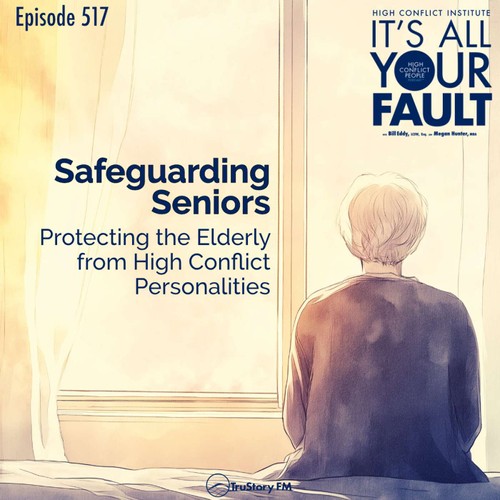
 It’s All Your Fault: High Conflict People
It’s All Your Fault: High Conflict People Safeguarding Seniors: Protecting the Elderly from High Conflict Personalities
Dec 5, 2024
The discussion dives into the vulnerabilities of the elderly, particularly regarding high conflict personalities. The hosts highlight how manipulation and control can exploit these weaknesses, especially in lonely seniors. Practical advice is shared on recognizing red flags for abuse and the importance of family involvement. Personal anecdotes and community themes emphasize the need for proactive protection while fostering strong connections for our elderly loved ones. It's an eye-opening exploration into safeguarding the most vulnerable.
Chapters
Books
Transcript
Episode notes
1 2 3 4 5 6
Intro
00:00 • 2min
Celebrating Family Care During the Holiday Season
02:21 • 2min
Unexpected Recognition at the Airport
04:47 • 3min
Empowering Tools for Managing High Conflict Relationships
07:18 • 3min
Elder Vulnerability in High Conflict Dynamics
10:35 • 25min
The Importance of Community and Connection for Seniors
35:51 • 4min



